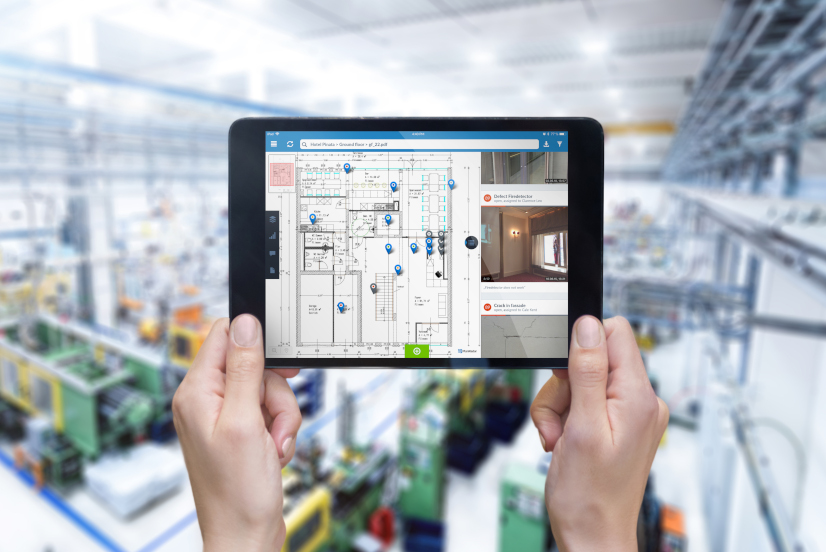How can healthcare estates and facilities management departments drive efficiency and reduce waste?
According to NHS England, the operating costs and capital value of the country’s NHS trusts amount to some £7 billion per year – making it the third-largest cost after staff and drugs. With healthcare budgets under strain, the NHS and other care providers could save significant amounts of money by improving the efficiency of facilities management in healthcare. But what is the best way to achieve those goals?

What is facilities management in healthcare?
Healthcare facilities management covers a wide range of tasks and responsibilities. These vary depending on the size of the estate, location in the UK, and the needs of each specific hospital, GP surgery or clinic.
According to the UK government’s standards for healthcare in facilities management, these tasks can be categorised as follows:
- Hard facilities management, which refers to things like building maintenance, large pieces of medical equipment, internal systems (pipes, wiring, plumbing), HVAC, fixtures and fittings and other parts of the estate which are physically attached in place.
- Soft facilities management, which covers things that can be moved – everything from equipment inventory to stock control to cleaning.
- General facilities management, including things like fire and safety management in healthcare facilities, cyber security, and resource planning.
Estate pros: Understand estate management digital transformation
The benefits of high-quality FM in healthcare
Good quality facilities management in healthcare can have a major impact on the running of hospitals, clinics and testing sites. The benefits of an efficient healthcare estates and facilities management strategy include:
- Better patient outcomes: Studies have shown that well-maintained facilities lead to better outcomes for patients.
- Better value for money: Well managed hospital facilities are more efficient and so save money.
- Extend life of assets: Hospitals, GP surgeries and clinics are major capital assets. Good quality facilities management will extend the life of these assets.
Different strategies for healthcare FM teams
Generally speaking, healthcare estates and facilities management at UK hospitals and trusts have two options when it comes to defining their strategy. They can choose to either manage their facilities in-house or they may decide to outsource these services to external providers.
In reality, most healthcare facilities managers opt for a balance somewhere between these two extremes. Some FM teams might, for instance, opt to outsource waste management in healthcare facilities. Meanwhile, they could bring other things like stock control in-house. FM teams’ strategies will vary depending on the region, and the availability (and capabilities) of outsourcing partners nearby.
While to a degree there has been some form of outsourcing in all UK nations, this approach is much more prominent in England compared to Wales, Scotland or Northern Ireland. The NHS in England tends to take a more market-led approach when it comes to maintenance, cleaning or inspections. As a result, these trusts encourage the outsourcing of more contracts compared to other UK nations. That said, there are exceptions to this rule – several English NHS trusts have decided to bring facilities management back in-house in recent years.
Unique challenges for facilities management in healthcare
Healthcare estates and facilities management departments must deal with an extremely complex environment and set of demands. Compared to other kinds of estate management, facilities management in healthcare has several unique challenges:
- Importance of hygiene: While cleanliness is important in all kinds of estate management, it is absolutely vital in healthcare.
- Very large estates: hospital facility managers must manage very large estates with hundreds of beds, offices, indoor and outdoor areas. They also have very high footfall and cannot afford downtime of machinery or facilities.
- Unique equipment: Healthcare facilities also operate unusual equipment, from X-ray machines to MRI scanners, EEG machines and much more besides. This unique equipment requires specific kinds of maintenance and upkeep.
- Complex supplier relationships: From canteen staff and cleaning teams to car park management and equipment care, healthcare estate facilities managers need to stay on top of complex relationships with multiple suppliers.
Related: Can medical building projects benefit from ConTech?
The digital opportunity for healthcare estates management
Estates and facilities management teams in all kinds of sectors are increasingly using software to support their work. And facilities management software has particular relevance in the healthcare field. These tools can digitalise many of the processes which facilities managers currently perform using manual and paper-based processes.
With PlanRadar, for instance, healthcare estates and facilities management teams can load up a digital blueprint of their estates on either a desktop or mobile device. From there, they can allocate tasks to in-house staff or outsourced subcontractors, schedule routine or preventative maintenance, and generate reports detailing completed work. Whether it is checking alarms for fire and safety management in healthcare facilities, managing upgrade projects, or taking care of waste management in healthcare facilities, PlanRadar makes your FM team’s life easier.
Digital technologies allow you to work faster, set reminders, and verify the quality of completed work. As a result, they can help make facilities management in healthcare much more efficient. Not only does that save time and money, but it ultimately leads to better patient outcomes.
To learn how healthcare estates and facilities management teams can use PlanRadar’s platform, contact us for a demo, or begin your free trial today.


